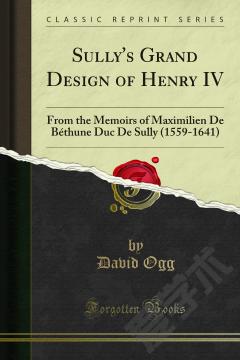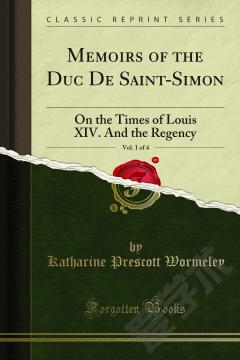Sully's Grand Design of Henry IV —— From the Memoirs of Maximilien De Béthune Duc De Sully (1559-1641)
----- 苏利的亨利四世大设计
Schemes for securing perpetual peace generally have for their authors either philosophers (such as Bentham and Kant) or accomplished scholars (like Pope Leo X.) or idealist statesmen (e.g., President Wilson), but rarely financiers. The realm of finance is an uncongenial one for the altruist and the day-dreamer; the uncompromising, the matter-of-fact, and, perhaps, the unexuberant are likely to be its most flourishing types. There is, however, one striking exception to this generalisation. Maximilian of Bethune, Duke of Sully (1559-1641), acquired considerable reputation as Henry IV.'s Superintendent of Finance after he had laid the foundations of a very large private fortune from booty appropriated in the troublous times preceding the accession of his royal master. His task as finance minister was a herculean one, since not only had he to find new sources of revenue, increase the prosperity of France by devising new roads and canals, and redeem many Crown lands and prerogatives from pawn, but he had also to reorganise the whole system of tax-collecting and, perhaps most difficult of all, to refuse all grants of money to the monarch that were likely to be spent in private pleasure. That imagination was not Sully's strongest characteristic is shown by the fact that he was the first Chancellor of the Exchequer who could boast that his budgets were honest. Avarice, austerity, and shrewdness were the qualities attributed to him by contemporaries; and in his Memoirs he shows that he was quite aware of his reputation.
{{comment.content}}








 京公网安备 11010802027623号
京公网安备 11010802027623号